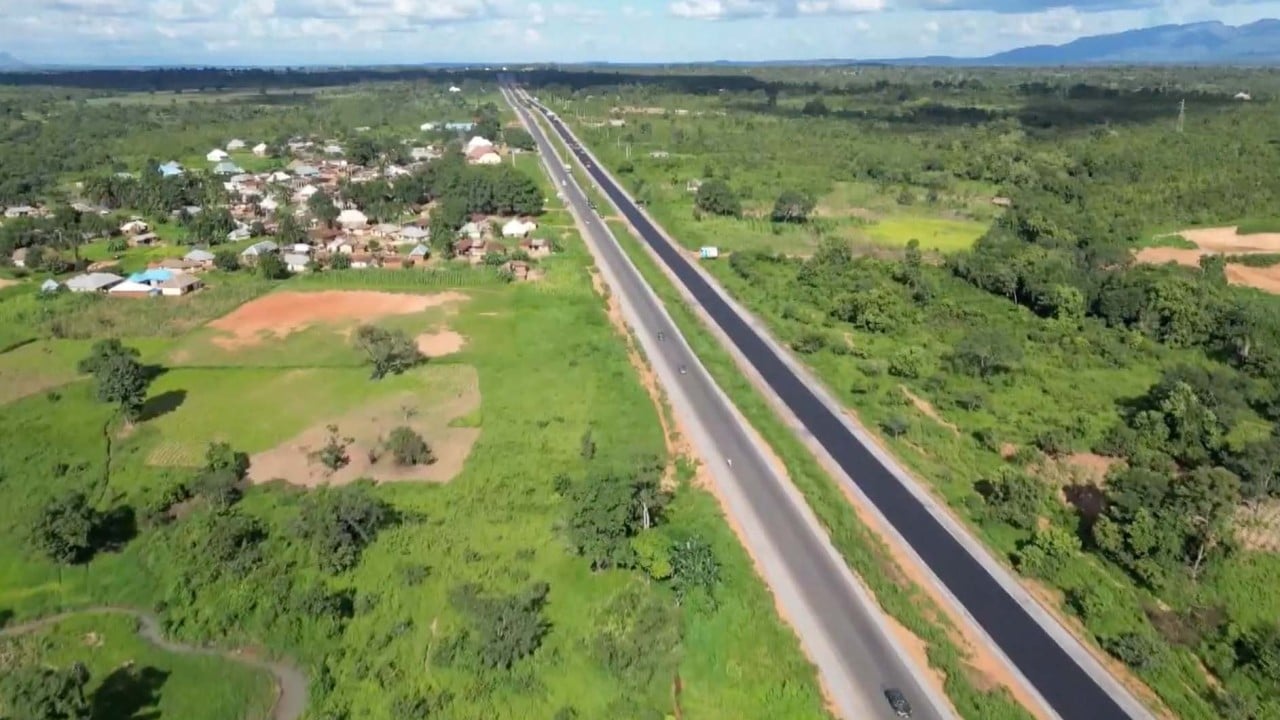
Why Ethiopia is taking its debt relief case directly to China, bypassing the G20
- The African country is emerging from Covid-19 and two years of civil war
- It applied for help under the Group of 20’s Common Framework but so far there’s been no progress
Debt was reportedly one of the issues under discussion when Ethiopian Finance Minister Ahmed Shide led a high-level delegation to China late last month.
As well as meeting Chinese Finance Minister Liu Kun and Jin Zhongxia, from the People’s Bank of China, the delegation held talks with key Chinese financial institutions and creditors, including the China Export-Import Bank of China, Industrial and Commercial Bank of China (ICBC) and China Development Bank (CDB).
The trip came soon after Prime Minister Abiy Ahmed visited Europe to raise funds for the reconstruction.
The trip included talks with Emmanuel Macron, the president of France, which co-chairs with China the Group of 20’s Common Framework creditor committee for Ethiopia.
The framework is an initiative for restructuring government debt aimed at low-income countries and Ethiopia requested debt restructuring under the framework in early 2021.
But so far there has been no tangible result.
The World Bank and the International Monetary Fund say China has been frustrating the talks while Beijing says since multilateral and commercial lenders hold most of the debt, they should take most of the burden in the restructuring.
With those talks at an impasse, Ethiopia is appealing to China directly.
Deborah Brautigam, a professor of international political economy at Johns Hopkins University and founding director of the China Africa Research Initiative, said top-level diplomacy had helped some countries attract attention to their debt problems, but it was no guarantee that the problems would be solved.
Brautigam said China Exim Bank was unlikely to go outside the G20 framework but other lenders such as CDB might strike deals with the Ethiopian government outside formal arrangements.
“I do not think that China Exim Bank is going to go outside of the Common Framework process for Ethiopia now that they have committed to it. It’s too early for that step,” Brautigam said. However, she said “there are other Chinese creditors in Ethiopia and these talks may concern their loans”.
Ethiopia has an estimated US$13.7 billion in debt to China, much of it advanced by China Exim Bank between 2000 and 2021.
The Chinese capital has funded the US$4.5 billion Addis Ababa-Djibouti railway, along with other projects like the capital’s Riverside Green Development as well as the light-rail network.
In addition, CDB advanced US$753 million in 2012 and 2013 for the development of small and medium enterprises and three sugar factories in Ethiopia, according to the Chinese Loans to Africa Database at Boston University’s Global Development Policy Centre.
Further, contractors such as Huawei, ZTE and State Grid Corporation of China have advanced a total of US$4.1 billion for the country’s digital and power connections. ICBC provided two loans worth US$975 million for a hydropower project and the Omo-Kuraz sugar factory.
Kevin P. Gallagher, director of the Global Development Policy Centre, said the Common Framework was too flawed for Ethiopia to stand idly any longer.
“They are smart to move to ‘by any means necessary mode’ but if they cannot secure commensurate treatment from its other major creditors, money saved from China will have to go to other creditors rather than to mount a recovery and meet its development and climate needs,” Gallagher said.
Besides looking to restructure the debts, the country is also wooing Chinese investors for the reconstruction of the economy.
During the trip to Beijing, China and Ethiopia signed a memorandum of understanding to establish an investment and economic cooperation working group.
China pledges support for reconstruction efforts in war-torn Ethiopia
Hannah Ryder, chief executive officer of Development Reimagined, a Beijing-based consultancy, said the answer to debt relief was not the G20 Common Framework.
“Borrowers were able to negotiate debt relief and restructuring with China themselves in years past, they don’t need the IMF/Paris Club to advocate for them,” she said.
In addition, Ryder said “every creditor is different, there is no one-size-fits all approach. But borrowers can do better by coordinating with each other and learning about the various deals they have struck with creditors, and seeking the best outcomes, bilaterally or collectively with each creditor.
“Creditors should shift their approach and urgently consider the best offers they can feasibly put forward to the borrowers, without damaging their [creditors’] own fiscal situations.”
She said the key would be for Ethiopia’s ministers and officials to negotiate the best deals.
“For this, the G20, or the IMF cannot help and have no role. Nor will legal institutions based in London or New York be particularly helpful – as they do not understand Chinese practices,” Ryder said.
China hands a lifeline to Ethiopian capital’s crumbling light rail
Instead, she said, Ethiopia could contact and learn from other countries that had worked with China on similar deals.
“Ethiopia already has a strong track record on this – on the continent in fact Ethiopia is seen as one of the strongest countries in having leveraged the interest of Chinese financiers into productive sectors to drive more growth,” Ryder said.
“But every negotiation can be strengthened, and my hope is that Ethiopia will seek the advice of other borrowers to do so.”
Besides Ethiopia, Ghana, which defaulted on most of its external debts, plans to send a team to Beijing for debt restructuring negotiations.
Ghana’s Ministry of Finance said on Wednesday that a Chinese delegation ended a three-day mission to engage the government of Ghana, following a request for the restructuring of Ghana’s US$1.9 billion debt owed to China.
The team visited Accra ahead of Ghana’s coming mission to China, all in line with ongoing negotiations for a sovereign debt treatment.
“Scheduled meetings are progressing well, and discussions have so far been highly cordial and fruitful,” Ghana’s Ministry of Finance said.
Zambia, which also applied to the G20 initiative after defaulting on some of its foreign debt, is awaiting the decision of bilateral lenders to restructure its debts amid a standoff between China and the World Bank on whether the Bretton Woods institution should provide debt relief.



